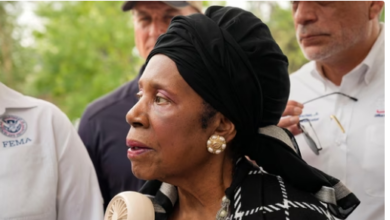
Ambiga Sreenevasan, former president of the Malaysian Bar, has issued a challenge to Pakatan Harapan, urging them to allow their lawmakers to exercise free voting on the controversial citizenship amendments proposed by the government. The call comes in the midst of ongoing criticism surrounding the amendments, particularly those seeking to eliminate automatic citizenship for foundlings.
Ambiga Sreenevasan
The proposed changes to citizenship laws have sparked considerable public debate and dissatisfaction. One of the contentious aspects is the removal of automatic citizenship for foundlings, individuals discovered without identifiable parentage. The amendments have faced backlash, raising concerns about potential discrimination and the denial of citizenship rights.
Ambiga Sreenevasan, known for her legal advocacy and leadership in the Malaysian Bar, has taken a stance against the proposed amendments. She has called on Pakatan Harapan, a coalition of opposition parties in Malaysia, to uphold democratic principles by allowing their members to vote freely on the issue. This challenge emphasizes the importance of individual lawmakers expressing their views and representing the diverse opinions within the coalition.
The citizenship amendments have been a source of tension and disagreement within Malaysian politics. The removal of automatic citizenship for foundlings has been particularly contentious, with critics arguing that it goes against principles of inclusivity and equal rights. The debate highlights broader concerns about the potential impact on vulnerable populations and the need for a comprehensive and fair approach to citizenship laws.
As the discussions surrounding the amendments continue, Ambiga Sreenevasan’s challenge to Pakatan Harapan underscores the significance of allowing lawmakers to exercise their judgment based on the interests and values they represent. The call for free voting aims to ensure that the legislative process reflects the diverse perspectives within the coalition, promoting transparency and democratic principles.
The outcome of this challenge will have implications not only for the specific citizenship amendments but also for the broader democratic norms within Malaysian politics. The ability of lawmakers to freely express their views and vote according to their convictions is crucial in maintaining a democratic and inclusive decision-making process.
In navigating the complexities of citizenship laws and amendments, there is a need for careful consideration of the potential consequences on individuals and communities. The challenge issued by Ambiga Sreenevasan urges political leaders to prioritize the protection of citizens’ rights and uphold democratic values in the legislative process.
As the debate continues, it remains to be seen how Pakatan Harapan will respond to the call for free voting on the contentious citizenship amendments. The outcome will shape the trajectory of the legislative process and determine the extent to which diverse opinions and concerns are taken into account in shaping Malaysia’s citizenship laws.




